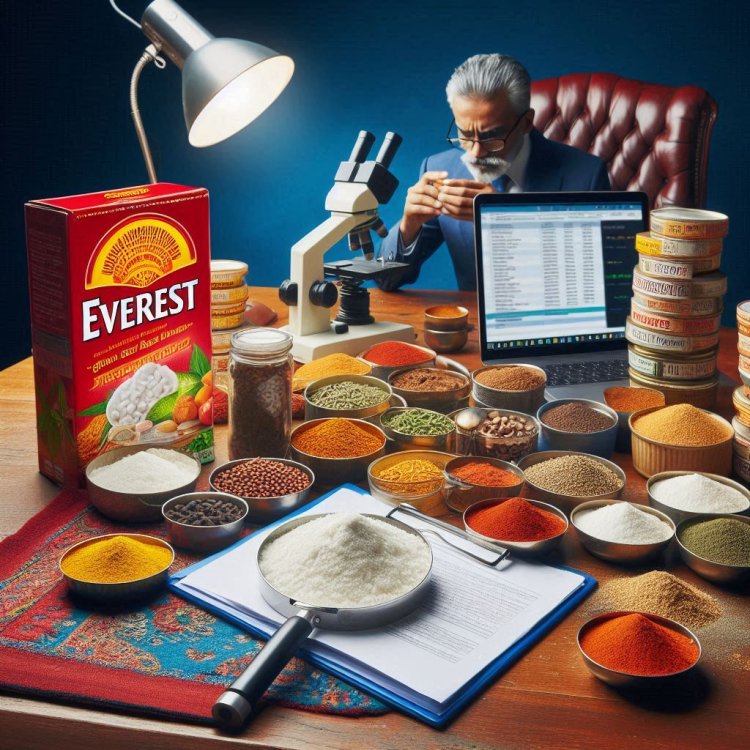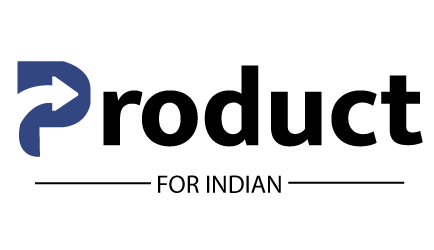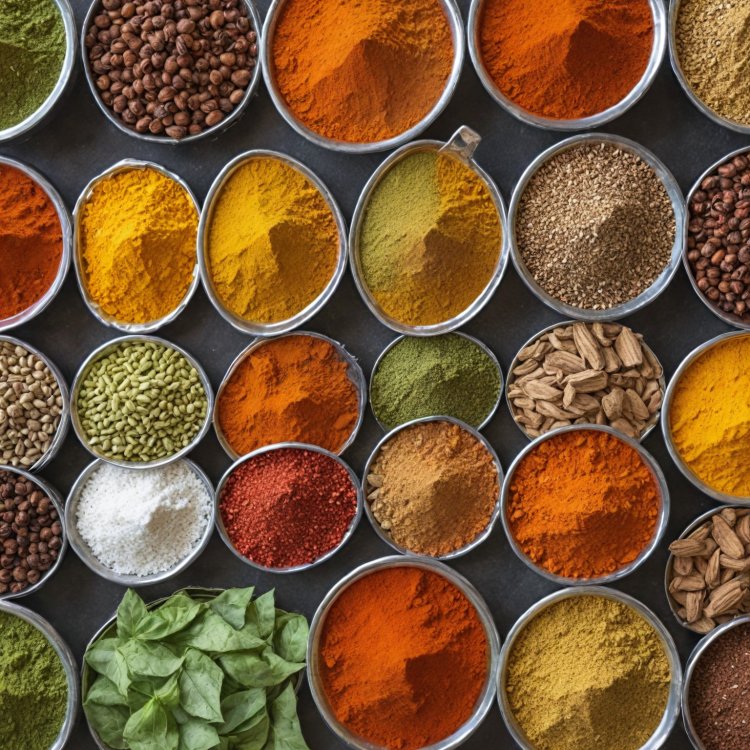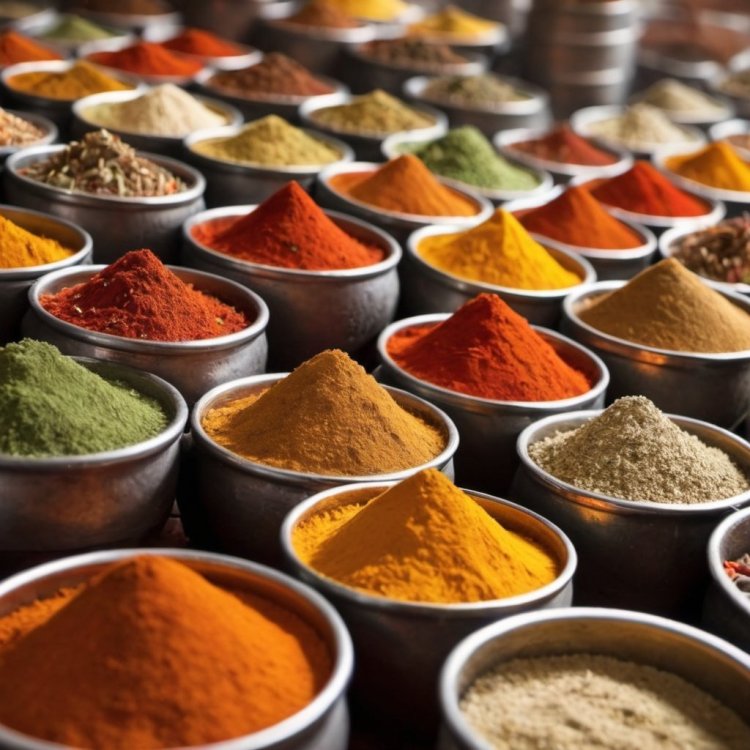Investigation Reveals Pesticides in Indian Spice Mixes: MDH and Everest Under Scrutiny for Potential Cancer Risks
Recent investigations have uncovered the presence of harmful pesticides in popular Indian spice brands MDH and Everest. This alarming discovery has raised concerns over the potential cancer risks associated with these widely used spice mixes
Why the Indian masalas are under the scanner
Popular Indian Spice Brands MDH and Everest Under Scrutiny Over Carcinogen in Products
MDH and Everest, household names synonymous with flavorful Indian cuisine, are facing heat after authorities in Hong Kong and Singapore found a cancer-causing pesticide in some of their spice blends.
These long-established companies (MDH founded in 1919 and Everest in 1967) have come under scrutiny following routine food surveillance programs in the aforementioned countries. Testing revealed the presence of ethylene oxide, a pesticide not permitted in food products, exceeding permissible limits.
Products Recalled, Investigations Launched
- Hong Kong's Centre for Food Safety (CFS) has withdrawn four spice blends from MDH (Madras Curry Powder, Sambhar Masala Powder, Curry Powder) and one from Everest (Fish Curry Masala) due to the ethylene oxide detection.
- Singapore's Food Agency has recalled Everest's Fish Curry Masala for exceeding permissible levels of the same pesticide.
Conflicting Messages from Spice Companies
- Everest Food Products claims their spices aren't banned, stating only one product is under examination in both countries. They maintain their products are safe and uphold high-quality standards.
- MDH has yet to issue a statement.
India's Response
- The Food Safety and Standards Authority of India (FSSAI) has initiated sampling of MDH and Everest spices.
- The Commerce Ministry has sought detailed reports from Indian embassies and the spice companies.
Wider Concerns
- This incident comes on the heels of the US Food and Drug Administration (FDA) rejecting around 31% of MDH products in the past six months due to salmonella contamination.
Potential Consequences for Consumers
- Ethylene oxide, classified as a carcinogen by the International Agency for Research on Cancer, can pose a cancer risk with long-term exposure.
- Consumers are advised to check the ingredients and expiry dates on their MDH and Everest spice blends.
This developing story highlights the importance of stringent food safety regulations and consumer awareness. Stay tuned for further updates on the investigation and potential outcomes.

What is ethylene oxide?
Popular Spice Brands in Hot Water: Ethylene Oxide Raises Cancer Concerns
MDH and Everest, cornerstones of Indian cuisine for decades, are embroiled in a new controversy. Regulatory bodies in Hong Kong and Singapore have found traces of ethylene oxide, a known carcinogen, in some of their spice blends.
What is Ethylene Oxide?
- Ethylene oxide is a colorless gas primarily used in chemical production.
- In smaller quantities, it's used as a sterilant and a pesticide, including for fumigating food spices to control bacteria like E. coli and Salmonella.
- However, the International Agency for Research on Cancer classifies it as a Group 1 carcinogen, meaning there's strong evidence it can cause cancer in humans.
Health Risks of Ethylene Oxide in Spices
- Chronic, low-level exposure through contaminated spices may increase the risk of cancers like leukemia, stomach cancer, and breast cancer.
- It can also irritate the respiratory system, causing problems like coughing, shortness of breath, and lung injury.
History of Issues with These Brands
- This isn't the first time MDH and Everest have faced scrutiny.
- In 2023, the US FDA recalled Everest products (Sambar Masala and Garam Masala) along with Nestle's Maggi Masala due to Salmonella contamination.
- Similarly, MDH recalled Sambhar Masala in 2019 for the same reason.
India's Response and Consumer Advice
- The Food Safety and Standards Authority of India (FSSAI) has ordered testing of MDH and Everest spices.
- The companies face potential legal action if found guilty of violating food safety regulations.
- Nutritionist Kanika Narang advises caution and recommends avoiding the identified products until the brands address the issue.
- Consumers can seek alternative spice sources with transparent safety practices.
Beyond India: A Global Concern
- The European Union banned ethylene oxide for food fumigation in 2011.
- This incident highlights the need for stricter global regulations and consumer awareness regarding food safety.
This developing story underscores the importance of holding food manufacturers accountable for safety standards. Stay tuned for further updates on the investigation and potential outcomes.

These Counties Have Banned The Sale Banned The Sale Of Cancer Causing Masala
Spice Safety Scandal: Ethylene Oxide Contamination Leads to International Bans
In a significant blow to the reputation of Indian spice brands, Nepal has joined Singapore and Hong Kong in banning the sale and import of certain spice-mix products. The move comes amid rising concerns over the quality and safety of these products, specifically regarding contamination with ethylene oxide (EtO), a chemical linked to cancer.
The Banned Products
The Department of Food Technology and Quality Control in Nepal has identified four spice mixes that exceed the permissible levels of EtO. The products in question are:
• MDH's Madras Curry Powder
• MDH's Sambhar Mixed Masala Powder
• MDH's Mixed Masala Curry Powder
• Everest's Fish Curry Masala
Regulatory Action
Following media reports highlighting the sale of these sub-standard products, the Nepalese authority has taken swift action, citing Article 19 of the Food Regulation 2027 B.S., which deems such products harmful for consumption. Importers and traders have been instructed to recall the affected products immediately.
A Ripple Effect on Trade
The controversy has cast a shadow over India's spice industry, with the Federation of Indian Spice Stakeholders (FISS) warning of a potential 40% drop in spice exports by FY25 if the contamination issue remains unresolved. This is particularly concerning given India's status as a top spice producer, having exported spices and related products worth $4 billion to approximately 180 countries in the previous fiscal year.
EU's Alarming Discovery
Adding to the industry's woes, the European Union has reported finding cancer-causing chemicals in 527 Indian food products, further intensifying the scrutiny on food safety standards. In response, Indian authorities are ramping up quality checks and considering alternative sterilization methods, such as gamma ray treatment, to ensure consumer safety.
Everest's Defense
Amidst the turmoil, Everest, one of the brands under scrutiny, has asserted the safety of their products, stating that they have not been banned in Singapore and Hong Kong. The company emphasizes that all products undergo rigorous checks, both internally and by the Spice Board of India, before being dispatched and exported.
Conclusion
The recent bans and the discovery of ethylene oxide in spice mixes have raised critical questions about food safety protocols and the need for stringent measures. As the Indian spice industry navigates this challenging period, the focus must remain on ensuring the health and well-being of consumers worldwide, while maintaining the integrity and trust in Indian spices that have been cherished for centuries.

 Editor
Editor 
































